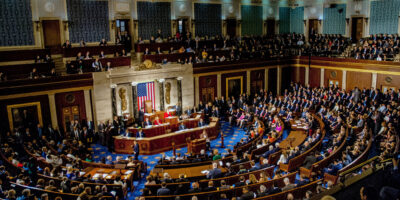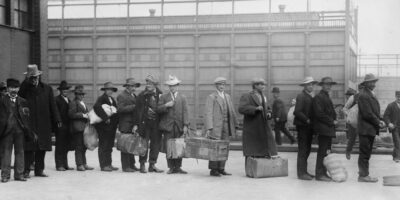The Best Way to Help Haitians? Help Them Get Out of Haiti

Ten years ago, a devastating earthquake rocked Haiti. It was a punch in the gut for a country that was already the poorest in the Western Hemisphere, as humanitarians, aid workers, and missionaries never seem to tire of telling us. The earthquake led to an outpouring of extremely well-intentioned aid, but with respect to what would actually help Haitians escape extreme poverty, we stepped over a lot of nickels — or trillion-dollar bills — to pick up pennies.
Religious people evangelize, ultimately, “to preach the gospel to the nations.” They (and the non-religious) also do humanitarian work in low-income countries to alleviate the crushing burden of poverty. There is, I think, a much easier way to accomplish both goals: remove restrictions on immigration.
Consider Haiti. The outpouring of humanitarian aid after the disaster was remarkable, and churches all over the country and all over the world have been sending mission teams to Haiti to help rebuild.
After the earthquake, humanitarian and religious organizations poured into Haiti in even greater numbers — it was already colloquially known as “the republic of NGOs” — and undoubtedly did great good. Does this really do the most good with the resources with which we’ve been entrusted? It’s true that an overseas mission trip can be a life-changing experience, but if this is the goal then we need to be honest and say that the mission trips are at least as much about the missionaries as about the people they are going to serve.
Simply allowing Haitians to move here would have led to a substantial reduction in Haitian poverty. A few months after the 2010 earthquake, I checked Travelocity.com and found a one-way flight from Port-au-Prince to Memphis, where I lived at the time, for $422. It would have cost roughly $1,700 to fly a family of four to Memphis. Economists’ estimates of the annual increment to income associated with just crossing the border says that this would be a great deal for the potential immigrants. The number of people who risk life and limb trying to move to the US across dangerous waters suggests that they recognize this.
We could probably do even better. A friend and fellow economist suggested we could alleviate Haitian poverty and slow the decline of Detroit by airlifting Haitians to Detroit. Boatlifts would probably be even cheaper. The impact on the lives of the world’s poor would be much greater than any aid program. Doing humanitarian work abroad is like giving people spare change: they have marginally more, we have marginally less, and things do change, but not radically. Letting more people move to the United States creates new wealth, of which we enjoy some and the new immigrants enjoy a lot.
Critics argue that this will come at the expense of Americans’ incomes. There is at least a bit of truth to this, but only a bit. People who dropped out of high school have seen small reductions in earnings from increases in low-skill migration, but high school graduates and people with some college education find that their earnings increase. Importantly, allowing people to move is not a transfer. The immigrants and those who receive the immigrants are better off as a result.
Others would argue that increased immigration would destabilize American cultural and political institutions. My first response is that variety is the spice of life, so increased immigration would expand our range of cultural possibilities. My second response is that I doubt that more than a tiny fraction of immigrants would move to the United States in order to undermine freedom. Indeed, more liberal institutions would probably be likely to select for entrepreneurial immigrants. In their recent illustrated book Open Borders, Bryan Caplan and Zach Weinersmith go through, evaluate, and ultimately reject the usual objections to increased immigration (I review the book here).
Barriers to immigration are an economic and moral absurdity that reflects political opportunism at best and anachronistic xenophobia at worst. I hope that our children someday look back on restrictions on immigration with the same revulsion and disgust with which we look at slavery.
A lot of Christians have prayed for global revival, and a lot of people, Christian and non-Christian alike, have worked for the end of global poverty. We had a chance to make a big dent in it after the Haitian earthquake, which we didn’t take. As we commemorate the anniversary of a humanitarian horror, I hope we take this as an opportunity to rectify our mistake.








